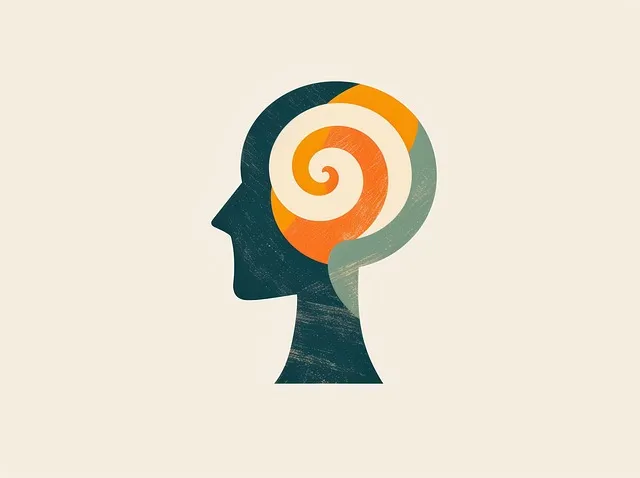In today's fast-paced world, mental wellness is key. Accessing effective self-assessment tools remains a challenge, particularly in diverse communities like those around the Lone Tree Kaiser Permanente mental health center, which emphasizes cultural competency training and emotional regulation practices. These tools, as seen in reviews for the center, provide initial evaluations of symptoms and emotional regulation abilities, guiding users through evidence-based conflict resolution techniques and personalized interventions. By integrating patient feedback into care plans, the Lone Tree Kaiser Permanente Mental Health Center ensures tailored services that enhance resilience and holistic mental health outcomes, positioning itself as a leader in the field.
Mental wellness self-assessment tools play a pivotal role in early detection and management of mental health issues. This article delves into the development of such tools, highlighting their significance in enhancing patient care. We explore the specific needs within mental health settings, offering insights on designing effective assessments. Through case studies, including practices at Lone Tree Kaiser Permanente Mental Health Center, we demonstrate how feedback integration improves patient outcomes. For those seeking Lone Tree Kaiser Permanente mental health center reviews, this article provides valuable insights into innovative care strategies.
- Understanding the Need for Self-Assessment Tools in Mental Health
- Designing Effective Mental Wellness Self-Assessment Tools
- Integrating Feedback and Enhancing Patient Care at Lone Tree Kaiser Permanente Mental Health Center
Understanding the Need for Self-Assessment Tools in Mental Health

In today’s fast-paced world, mental wellness is a cornerstone of overall health and well-being. However, many individuals struggle to access effective self-assessment tools that can help them understand and manage their mental health. This gap in resources is particularly evident in areas like the Lone Tree Kaiser Permanente mental health center reviews, where diverse communities seek support for various mental health concerns. Self-assessment tools play a crucial role in empowering individuals to take charge of their mental wellness by providing an initial evaluation of symptoms, emotional regulation abilities, and potential areas of improvement.
By offering easy-to-use and accessible resources, these tools can bridge the gap between seeking help and receiving professional guidance. They also foster self-awareness, enabling people to identify triggers for stress, anxiety, or depression and develop coping mechanisms using evidence-based conflict resolution techniques. Additionally, healthcare provider cultural competency training ensures that these tools are sensitive to diverse backgrounds and experiences, enhancing their effectiveness across various communities. Incorporating practices aimed at emotional regulation can further strengthen the ability of self-assessment tools to support long-term mental wellness.
Designing Effective Mental Wellness Self-Assessment Tools

Effective mental wellness self-assessment tools are designed to provide individuals with a clear understanding of their current mental health status and areas that may need improvement. These tools should be user-friendly, easily accessible, and tailored to cater to diverse populations. Incorporating evidence-based practices and leveraging technology can enhance their reliability and validity. For instance, Lone Tree Kaiser Permanente mental health center reviews highlight the importance of comprehensive assessments in identifying specific needs.
Self-assessment tools should not only gauge symptoms but also assess coping mechanisms, social support networks, and resilience. This holistic approach ensures that individuals receive tailored interventions, such as Social Skills Training or Stress Management programs, to address their unique challenges. By combining quantitative measures with qualitative feedback, these tools empower users to take control of their mental wellness journey.
Integrating Feedback and Enhancing Patient Care at Lone Tree Kaiser Permanente Mental Health Center

At Lone Tree Kaiser Permanente Mental Health Center, integrating feedback from patients and their families is a cornerstone of enhancing patient care. This approach is based on the belief that understanding individual experiences and needs is vital for delivering tailored mental health services. By actively incorporating feedback into treatment plans, healthcare providers at the center can better support patients in managing their conditions and developing coping skills. For instance, reviews highlight how staff use this input to refine mental health education programs, ensuring they cater to diverse learning styles and address specific challenges faced by patients.
This patient-centered care model goes beyond mere treatment; it fosters emotional regulation and resilience. The center’s commitment to continuous improvement, driven by patient feedback, underscores its reputation as a leader in holistic mental health care. Through these initiatives, Lone Tree Kaiser Permanente Mental Health Center not only improves outcomes but also creates a supportive environment where individuals can navigate their mental health journeys effectively.
The development of mental wellness self-assessment tools is a crucial step in empowering individuals to take charge of their mental health. As evidenced by the success at the Lone Tree Kaiser Permanente Mental Health Center, integrating these tools into patient care can lead to significant improvements. By encouraging self-reflection and providing valuable feedback, healthcare professionals can offer more personalized and effective treatment plans. The center’s positive reviews highlight the impact of such initiatives, demonstrating that accessible and user-friendly self-assessment tools are game changers in mental health management.






